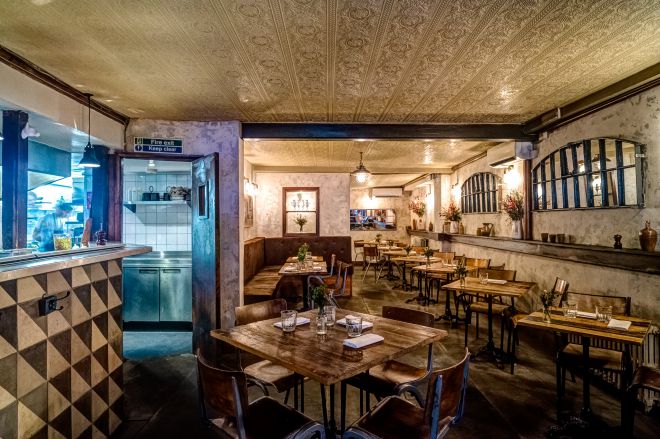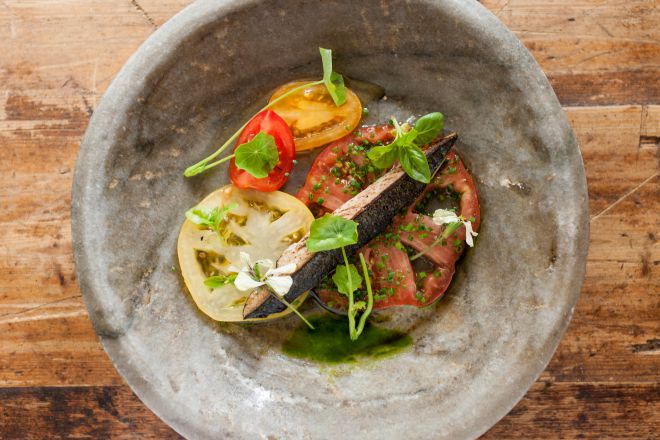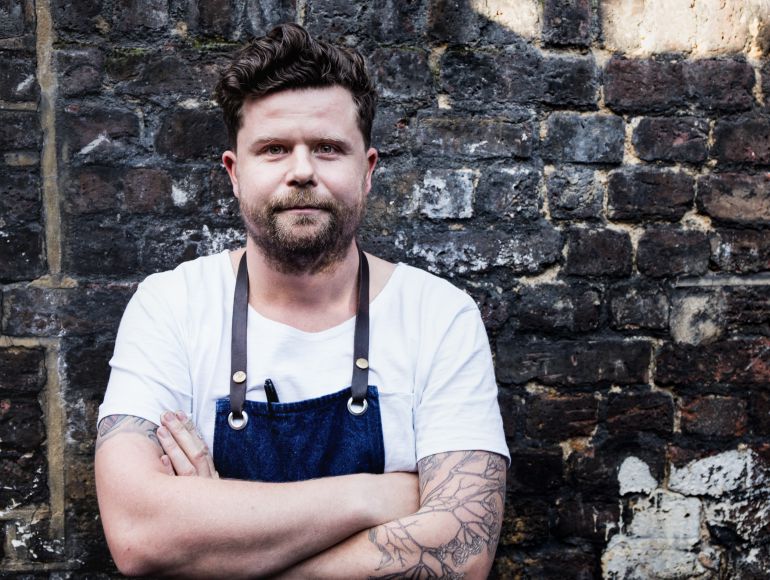“Today we care far more about where things come from”
Dublin-born chef Robin Gill opened The Dairy in Clapham, south London in 2013. It quickly became one of the hottest new restaurants in London and was followed by three further foodie ventures, The Manor, The Delicatessen and Paradise Garage. Next month he’ll be cooking a botanically inspired tasting menu at a special event hosted by Wardian London at the Design Cube.

The Dairy in Clapham opened in 2013
How did your love affair with cooking begin?
It really began with working on my auntie’s farm in Cork, always surrounded by pigs and sheep and cattle when I was 17. I didn’t know what I wanted to do but I knew I wanted to learn something. My sisters and both my brothers – one had been in restaurants - knew how to cook and my father who had travelled the world as a musician had met many chefs and it seemed like a great career. I started in the kitchen of a big French brasserie in Dublin, La Stampa. It was a brutal start. It had 400 covers and was a real baptism of fire.
And who were your heroes?
When I first started cooking my hero was Raymond Blanc with his philosophy of using the whole animal and being surrounded by the freshest, natural ingredients. I saw a program on TV he made which inspired me, and taught me that it was not just about cooking in the city with imported ingredients.
What makes Irish food stand out?
I think the secret is the ingredients. It’s the best dairy in the world and the livestock – the beef, the lamb, and the pigs – are all phenomenal. The vegetables are some of the best, fresher than from France, Spain and Italy where they have to be imported. Twenty years ago, these great Irish restaurants were only in the country but now they are opening in the cities, where you can enjoy this wonderful natural cooking.
What do you say to those who say the ‘golden age of restaurants’ is over?
It’s clearly going to be more of a gamble with Brexit and because the exchange rate is making imported ingredients more expensive. It’s always the case that for every great opening, there are many more restaurant closures.
I have lived through a recession, in 2007. I was working in a big business with a large team of 10 chefs. But we all had to adapt and try to be creative with ingredients. That’s why we have just taken over part of a farm near Gatwick - ‘Our Farm’ - where we grow our own ingredients. But we are never immune to hard times and must constantly reinvent ourselves with higher rents, higher costs while all the time trying to keep prices down. It’s fiercely competitive.
What’s the biggest change you have seen in the restaurant business?
Two things - a growing appetite for a more relaxed and less formal dining experience. It started with the bistro, serving moules or steak frites. What you see now is an incredible resurgence of the modern bistro with a high calibre chefs in zones 2,3 and 4 with an incredibly high level of cooking.
The other change is the decline of ‘molecular gastronomy’, the technique of using all sorts of foams and gels to try and make something that the food really isn’t. Today we care far more about where things come from and you can see this with the growth of farmers’ markets. It’s a slow movement but a very positive one.

Brilliant British produce is combined with Nordic inspired flavours
And your favourite dish?
That’s impossible! No…it has to be spaghetti bolognese. I know it’s not very Irish but it’s one of the first dishes my mum taught me. Now, if I’m under the weather, I’ll get someone to cook me spagbol.
Finally, what advice would you give to a young 17-year-old starting out in the restaurant business?
Really get out and try a lot of different styles and be the customer – Japanese, Thai, British, Italian. Then pick a handful of the best of those styles and work for free, do ‘a stage’, every kitchen will let you do that. Do it for a minimum of a week and just throw yourself at it. And do it for three months and then evaluate what you have learned. If you are fortunate enough to go to college, that’s great but it’s better to go straight into a kitchen and study the industry from the inside.



